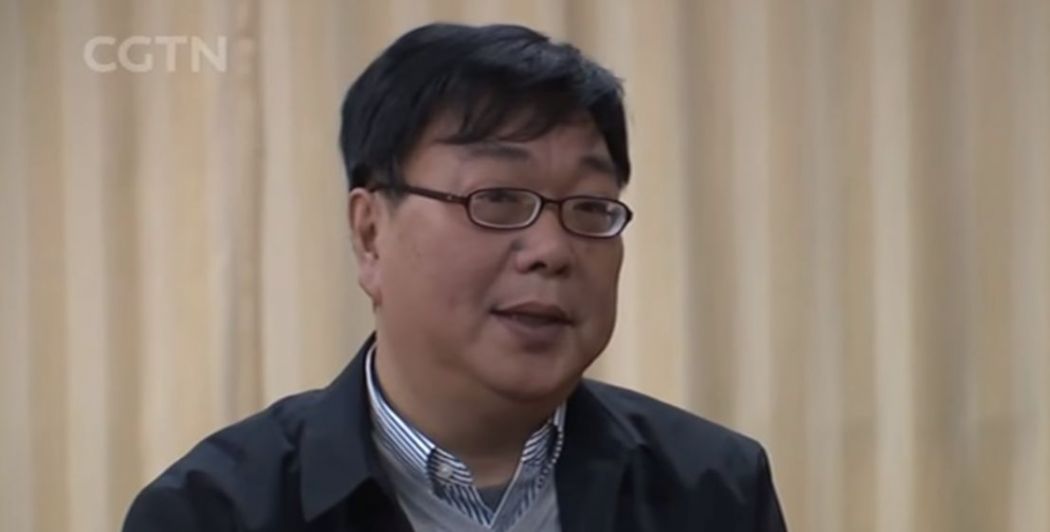I wouldn’t claim to be an expert on the resumption of China’s cultural revolution era-type forced TV confessions, but as one of the 70 or more people who have been made to ‘confess’ on TV, always before any trial – often even before having been arrested – since Xi Jinping’s ascent, I do have a few cents to add on the subject.
Was Gui Minhai’s latest, his third, scripted by the Chinese police? Was he told what to say? Was he forced to do so with threats to himself or loved ones? Yes. End of discussion. His words hold no value whatsoever, except perhaps the final part, where he offers his love to his daughter and family.

Despite it having been some time since the last forced TV confession appeared, the subject has been on my mind recently. Just this Christmas a researcher, working on a major report on the subject, approached me, asking if I’d be willing to offer detailed testimony about my own TV appearance. I readily agreed, as did many other victims of forced TV confession, to help shed some light on these forced confessions and the role they play in today’s China.
For myself, all it took to know this was forced and scripted was to look at the style and delivery of Gui’s latest confession. The fact that Gui had a two page-length statement, memorized, to answer the first question he was asked, covering all the keys points “he” wanted to get across, should make it easy to realize it was scripted and forced. His focus on declaring how the police took steps ‘in accordance with law’ over and over, should likewise make it clear.
The presence of Oriental Daily, and of Global Times, media under control of the Chinese Communist Party, also means the police knew what questions would be asked, and likely ordered the said “journalists” to ask them.

In my case the “journalist” from state-run CCTV was given a paper with the questions to ask written down. There was no discussion, she simply repeated the lines like a robot.
I had the same paper, but with the answers I was to give written down as well. It was hard to take it especially seriously when both you, and the “journalist”, would be so well aware of it – being two actors acting out a play, with a director and assistants surrounding you. The direction was very real, and went beyond simply putting words in one’s mouth.
Myself, and others I know who have been through these confessions, can testify that it’s not just about what lines you are to repeat, it’s about how you deliver them – style, delivery, tone, pitch, posture, the amount of smile or expressed sadness or remorse – it’s all directed and staged.
Despite the fact that the words are not Gui’s, his latest forced TV confession shows the evolving nature of how these confessions are used, and how they have chosen to use a more ‘interactive’ form this time around, although the reality is of course the same. Adding the semi-independent South China Morning Post to the list of invited media posed no risk, as Gui was forced to simply read prepared statements, and SCMP has played along with the CCP before in its mysterious interview with Zhao Wei.
Most interestingly, Gui is forced to say that he is a pawn, a chess-piece, in the control of the Swedish government. In reality, it’s the reverse. He is literally a pawn, a vessel, an actor, reading from the direction of the Chinese Communist Party and the police. Action! Gui as a victim has become an instrument of foreign policy.
This is a crisis China does not want, and they do not know what to do. It’s too late to back down, yet every step further risks creating cohesion in the west – the one thing China fears. China’s behaviour is made possible by the west’s lack of cohesion.
China is now desperately trying to contain the situation, and Gui’s new confession was one attempt to do so, and using up the last remnant of respect and dignity of SCMP was not a big price if it increased the chance of it working. Luckily, this attempt has backfired.

So how should responsible media report on Gui’s, and all the other forced TV confessions? It certainly needs coverage, and such coverage is key to exposing how China is undermining the international rules-based system we have for long taken granted. It’s also key to put the spotlight on the victims, like Gui.
Continued coverage will also certainly help the growing calls for the EU to sanction Chinese media just like is has with Iranian media, and push the U.S. to treat Chinese media the same way it now treats Russian state-backed media. Coverage is key.
However, responsible media should not let themselves be played as pawns by the CCP. They should not focus on the words of the confession – which we all know are not Gui’s words – they are the words of the CCP. Those words should simply be ignored, and certainly not quoted, as they have no value of any kind, and to reprint them simply serves the purpose of the CCP.
The next time China airs a forced TV confession – pre-trial and probably even pre-arrest, the media should report it with responsibility and humanity and report it for what it is – a repugnant violation of both human rights and the right to a fair trial.
